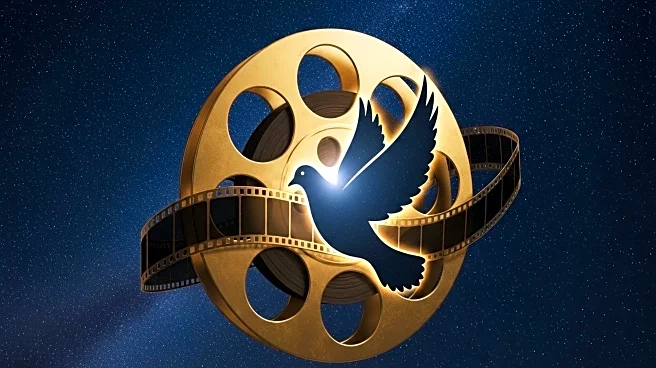What is the story about?
What's Happening?
A group of Hollywood actors and filmmakers, including Javier Bardem, Emma Stone, and Joaquin Phoenix, have pledged to boycott Israel's state-funded movie industry in response to the humanitarian crisis in Gaza. This action coincides with Israel's Cultural Minister threatening the country's film and television academy. Bardem, who wore a keffiyeh at the Emmy Awards, denounced the situation in Gaza, joining over 4,000 others in signing a pledge organized by Film Workers for Palestine. The boycott aims to pressure the Israeli government to cease hostilities in Gaza, with organizers emphasizing that the boycott targets institutions rather than individuals.
Why It's Important?
The boycott by Hollywood stars highlights the growing international criticism of Israel's actions in Gaza, potentially influencing public opinion and diplomatic relations. It underscores the role of cultural figures in advocating for political change and human rights. The boycott could impact Israel's film industry by reducing international collaboration and funding opportunities, affecting filmmakers and production companies. The stance taken by these celebrities may also inspire similar actions in other industries, increasing pressure on Israel to address the humanitarian concerns raised.
What's Next?
The Israeli film industry may face challenges in maintaining international partnerships and funding, as the boycott gains traction. The Cultural Minister's threat to withdraw state funding from the Israeli Academy could lead to significant changes in the country's film landscape. Israeli filmmakers may continue to produce critical works, potentially facing increased scrutiny and pressure from the government. The situation may prompt further discussions and actions from international cultural and political entities, influencing future diplomatic engagements with Israel.
Beyond the Headlines
The boycott raises ethical questions about the role of art and culture in political activism and the responsibilities of artists in addressing global issues. It also highlights the tension between creative freedom and political agendas, as seen in the Israeli government's response to the film industry's criticism. The situation may lead to long-term shifts in how cultural institutions engage with political conflicts, potentially redefining the boundaries between art and activism.
















